Filter by

Women's Empowerment and Public Policy in the Arab Gulf States :Exploring Chal…
This open access book explores the various dimensions of women’s empowerment in public policy in the Gulf Cooperation Council (GCC) region, with a particular focus on Qatar, comparing the country to the other Gulf states. Through its rich compilation of empirical qualitative research, the text unpacks the various ways in which women’s empowerment materializes in the GCC context, providing i…
- Edition
- 1
- ISBN/ISSN
- 9789819960064
- Collation
- XIV, 210: ill; lamp
- Series Title
- 11
- Call Number
- -

Sustainable Qatar : Social, Political and Environmental Perspectives
This open access book provides a topical overview of the key sustainability issues in Qatar, focusing on environmental sustainability from a socio-political perspective. The transition to a sustainable Qatar requires engagement with diverse areas of social-political, human, and environmental development. On the environmental aspects, the contributors address climate change, food security, water…
- Edition
- 1
- ISBN/ISSN
- 9789811973987
- Collation
- XIII, 380: ill; lamp
- Series Title
- 9
- Call Number
- -
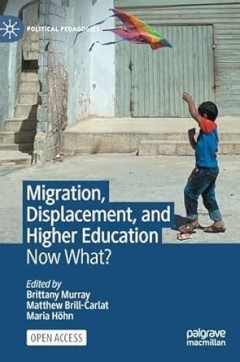
Migration, Displacement, and Higher Education
This open access book is a nuanced introduction to Forced Migration Studies and a toolkit for faculty and undergraduate students, with a special emphasis on community-engaged learning. Experts from the social sciences, humanities, arts, and experimental sciences offer interdisciplinary perspectives to translate critical analysis into concrete action. The collection highlights activists, artists…
- Edition
- 1
- ISBN/ISSN
- 9783031123504
- Collation
- XXVIII, 299 hlm; ill., lamp.,
- Series Title
- -
- Call Number
- -

Preparing for Digital Disruption
This open access book offers an analysis of why preparations for digital disruption should become a stated goal of security policy and policies that aim to safeguard the continuity of critical infrastructure. The increasing use of digital technology implies new and significant vulnerabilities for our society. However, it is striking that almost all cyber-security measures taken by governments, …
- Edition
- 1
- ISBN/ISSN
- 9783030778385
- Collation
- XIV, 74 hlm,: ill, lamp;
- Series Title
- -
- Call Number
- -

Why Knowing What To Do Is Not Enough : A Realistic Perspective on Self-Reliance
This open access book sets out to explain the reasons for the gap between “knowing” and “doing” in view of self-reliance, which is more and more often expected of citizens. In today’s society, people are expected to take responsibility for their own lives and be self-reliant. This is no easy feat. They must be on constant high alert in areas of life such as health, work and personal f…
- Edition
- 1
- ISBN/ISSN
- 9789402417258
- Collation
- IX, 157 hlm,: ill, lamp;
- Series Title
- -
- Call Number
- -

The politics of crime, punishment and justice: exploring the lived reality an…
- Edition
- -
- ISBN/ISSN
- 9781003328339
- Collation
- -
- Series Title
- -
- Call Number
- -
- Edition
- -
- ISBN/ISSN
- 9781003328339
- Collation
- -
- Series Title
- -
- Call Number
- -
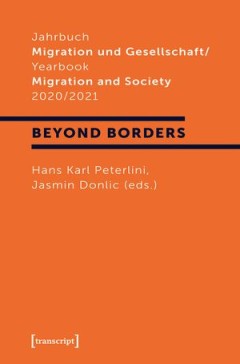
Jahrbuch Migration und Gesellschaft / Yearbook Migration and Society 2020/20…
Migration is not a state of emergency, but a basic existential experience of humanity. It shapes contemporary societies by challenging established orders, creating transnational spaces beyond national hegemonies, creating new economies, influencing urban and communal ways of life, making inequality and precariousness visible locally and globally. Migration research as a social science does not …
- Edition
- 1
- ISBN/ISSN
- 9783839455913
- Collation
- -
- Series Title
- -
- Call Number
- 351.81 JAH j
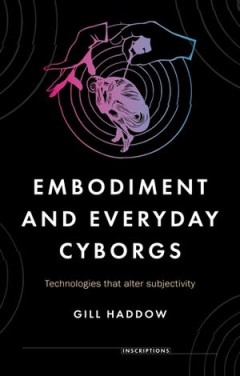
Embodiment and everyday cyborgs Technologies that alter subjectivity
Using a range of social science methods and drawing on the sociology of the body, biomedicine and technology, Haddow invites readers of ‘Embodiment and everyday cyborgs’ to consider whether they might prefer organs from other humans or non-human animals (known as xenotransplantation), or implantable ‘cybernetic’ technologies to replace their own? In discovering that individuals have a v…
- Edition
- 1
- ISBN/ISSN
- 9781526114198
- Collation
- -
- Series Title
- -
- Call Number
- -
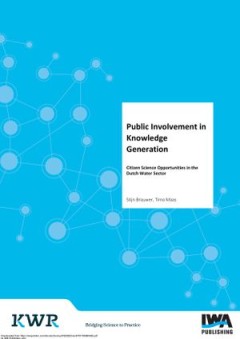
Public Involvement in Knowledge Generation : Citizen Science Opportunities in…
Public Involvement in Knowledge Generation is an Open Access co-publication with KWR.
- Edition
- -
- ISBN/ISSN
- 9781789060492
- Collation
- -
- Series Title
- -
- Call Number
- 320 BRO p
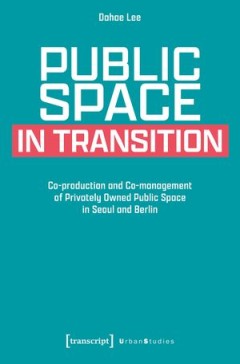
Public Space in Transition: Co-production and Co-management of Privately Owne…
Teheran-ro in Seoul and Mediaspree area in Berlin are pristine examples for public spaces with a history of rapid change in the context of broader political and economic transitions. Dahae Lee shows that in such a transitional context, the public sector alone is incapable to provide and manage public space. Hence, it engages private sector entities in the form of privately owned public space/s …
- Edition
- -
- ISBN/ISSN
- 9783839462324
- Collation
- -
- Series Title
- -
- Call Number
- 307.2 LEE p
 Computer Science, Information & General Works
Computer Science, Information & General Works  Philosophy & Psychology
Philosophy & Psychology  Religion
Religion  Social Sciences
Social Sciences  Language
Language  Pure Science
Pure Science  Applied Sciences
Applied Sciences  Art & Recreation
Art & Recreation  Literature
Literature  History & Geography
History & Geography